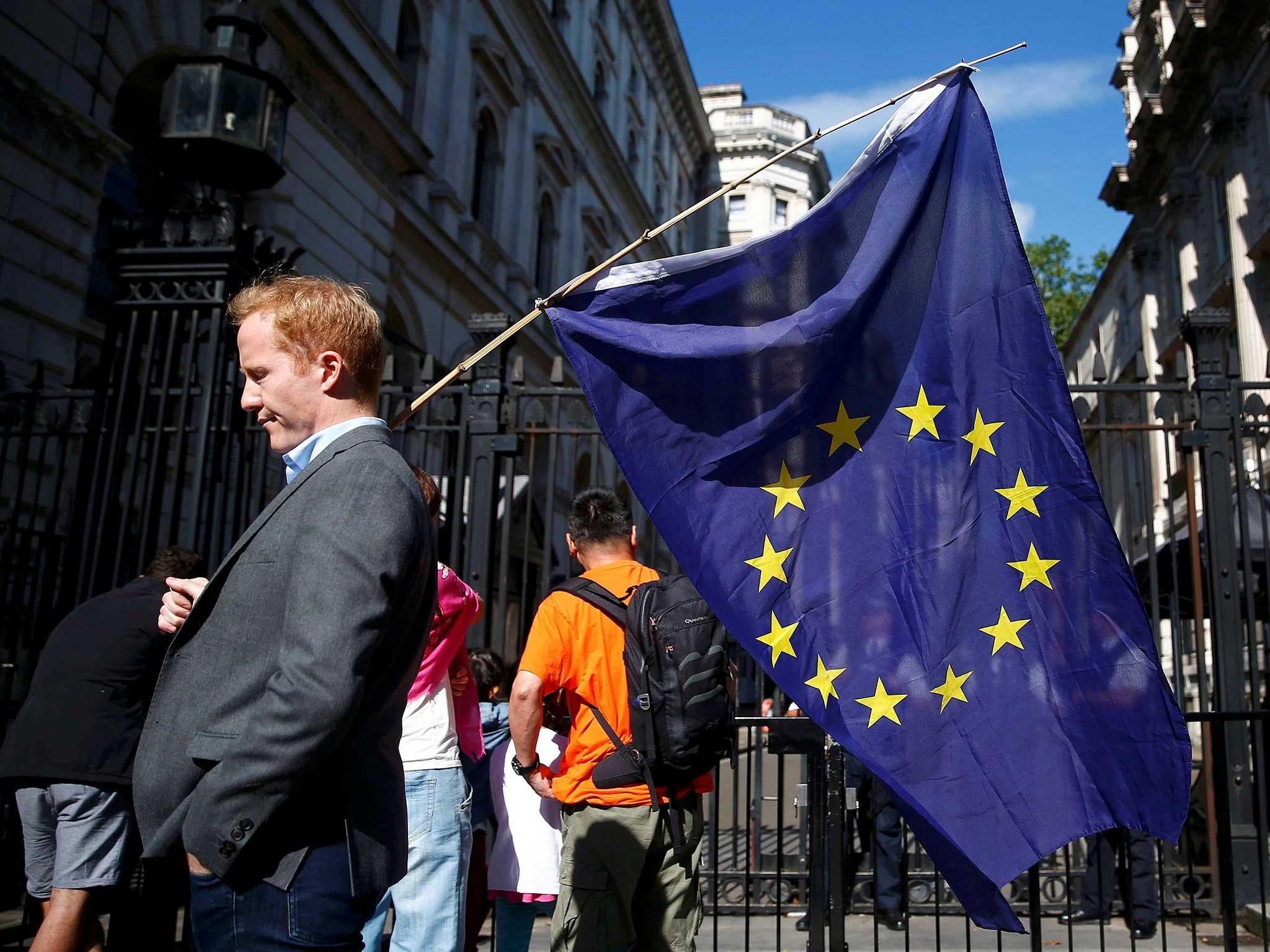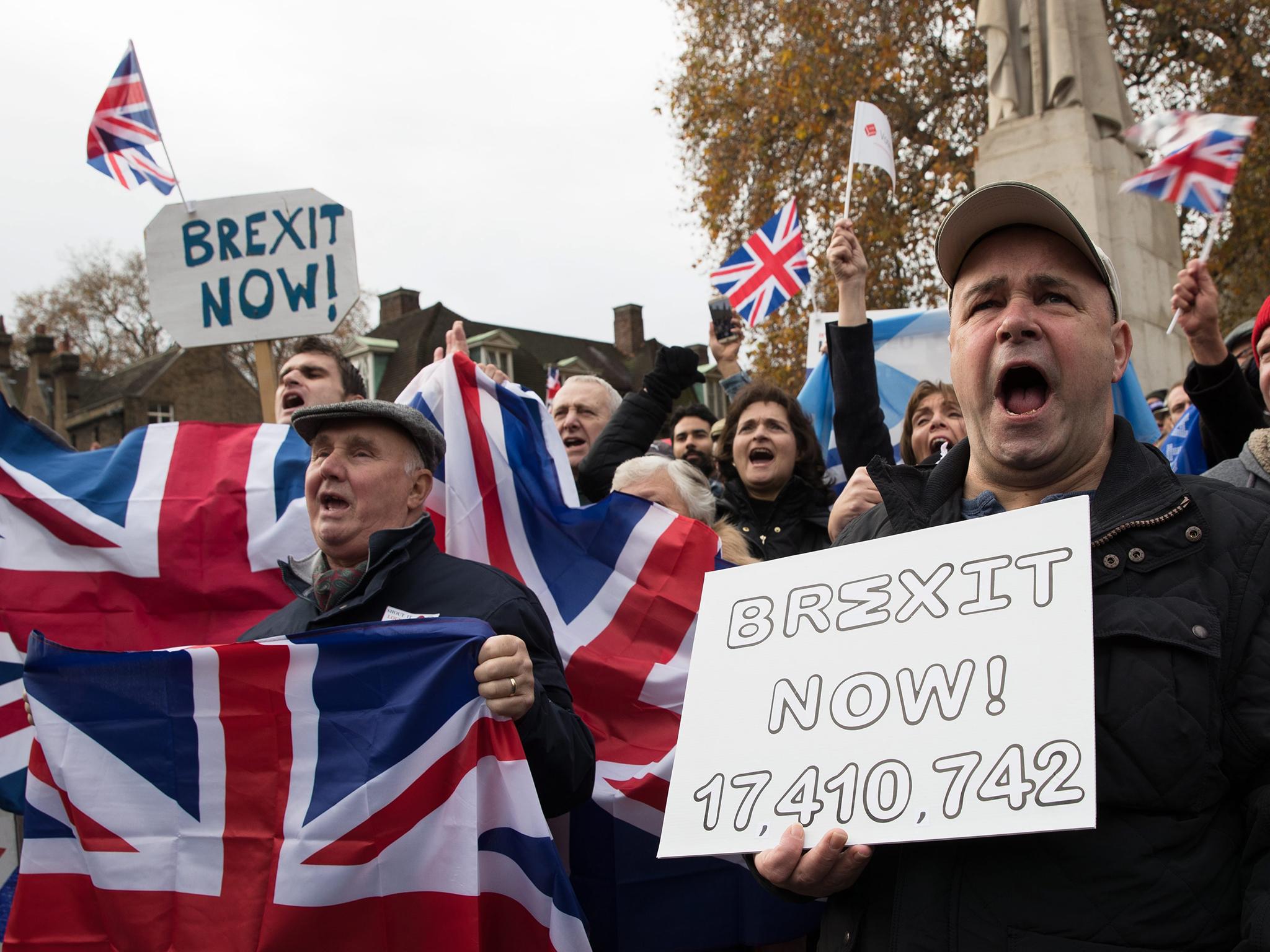Every household will lose £1,250 a year because of Brexit, says Institute for Fiscal Studies
The respected think tank also warns that working families will be hit hardest by a referendum-induced slump in earnings - with pensioners protected

Every household will lose a staggering £1,250 a year because of the Brexit vote, independent forecasters say – as they painted a devastating picture of falling living standards, including no increase in real wages for at least another six years.
The respected Institute for Fiscal Studies (IFS) also warned that working families will be hit hardest by the unprecedented slump, with pensioners better protected.
Workers will suffer because of an expected 3.7 per cent fall in real earnings by the start of the next decade, compared with the pre-referendum forecast.
Crucially, the ultra-gloomy prediction only takes into account the uncertainty triggered by the June result – not the effect of any eventual Brexit deal, which is mired in confusion.
At its traditional post-Autumn Statement briefing, the IFS said the forecasts were based on the calculations made by the Office for Budget Responsibility (OBR), the official Treasury watchdog.
IFS economist Andrew Hood said: “The OBR’s figures are for real GDP per household to be £1,250 lower in 2020-21, as a result of the vote to leave the EU.”
And he added: “Everyone will feel some of the pain, but I expect working-age households will feel more pain than pensioner households over the next few years.”
IFS director Paul Johnson said: “This has, for sure, been the worst decade for living standards certainly since the last war and probably since the 1920s.
“We have seen no increase in average incomes so far and it does not look like we are going to get much of an increase over the next four or five years either.”
The analysis is the starkest yet to directly tie the Brexit vote to what the IFS calls a “dreadful and extraordinary” lost decade and more of falling incomes.
Real earnings had not been expected to bounce back from their 2008 pre-recession peak until 2020 – but that crossover date will now be later than 2021.
Mr Hood said the OBR’s forecast was for national output to be £30bn lower in 2020-21 than it thought back in March, or £1,000 per household.
But, stripping out other factors, the effect of the Brexit vote was “actually larger”, at around £50bn – or a £1,250 swipe for every household.
The earnings slump is “mainly explained by lower productivity, as investment falls in light of post-Brexit uncertainty ‒ combined with higher inflation [because of the fall in sterling]”.
Susan Kramer, the Liberal Democrat Treasury spokeswoman, seized on the analysis as firm proof that every household will be “poorer thanks to Brexit”.
Mr Hood said GDP was “not a direct measure of the cash in people’s pockets”, but it was a “good indicator” of lower future living standards.
He said: “Regardless of how you cut the cake, or how you do the analysis, lower future growth has to eventually mean lower future living standards.”
The conclusions mirror the evaluation carried out by a separate think-tank, the Resolution Foundation, which also found that Brexit will tighten the squeeze on incomes.

It said the inflation-adjusted incomes of the entire bottom third of the income distribution – the least well-off 30 per cent of households – will fall between 2015 and 2020.
This means the economic gloom – for all George Osborne’s cuts – will bite harder than in the last Parliament, which saw incomes of the bottom third creep up by around 0.5 per cent.
But No 10 hit back at the IFS figures, claiming it was wrong to focus on wages rather than net income after tax-and-benefit adjustments.
A spokesman insisted real household disposable incomes will rise by 2.8 per cent by 2021, saying: “If you look at livings standards, they're at their highest ever level.”
Strikingly, Mr Johnson said the OBR forecasts – ridiculed as “doom and gloom” by pro-Brexit Tory MPs – were "noticeably more upbeat" than those of other experts, including the Bank of England.
He added: "Even so, the outlook for living standards and for the public finances has deteriorated pretty sharply over the past nine months.
“And getting to balance in the next Parliament will still require an additional dollop of austerity on top of the full decade's worth we will have had by then.”
Join our commenting forum
Join thought-provoking conversations, follow other Independent readers and see their replies
Comments